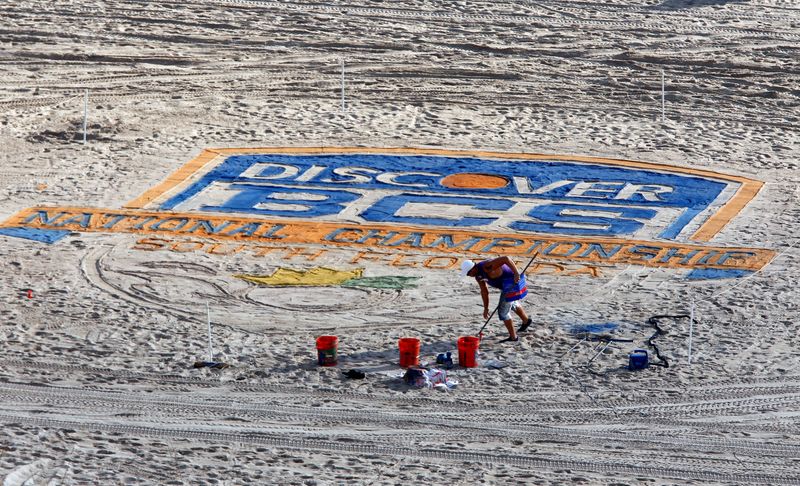(This July 11 story has been corrected to change million to billion in paragraph 4)
By Daniel Wiessner
(Reuters) - A U.S. appeals court on Thursday created a test for courts to determine when college athletes are the employees of their schools and the governing body for American intercollegiate sports, making them eligible for the minimum wage.
In the first ruling of its kind, a panel of the Philadelphia-based 3rd U.S. Circuit Court of Appeals said athletes may be regarded as employees under federal wage laws if they primarily perform services for their schools' benefit "in return for express or implied compensation or in-kind benefits."
The ruling allows a group of former college athletes to pursue a proposed class action against the National Collegiate Athletic Association and their former schools.
It follows a landmark $2.8 billion settlement by the NCAA in May to resolve class-action lawsuits claiming it had violated antitrust law by restricting the compensation and benefits to students for their athletic service. In March, Dartmouth College men's basketball players became the first U.S. college athletes to vote to join a union, a move that is being challenged by the New Hampshire school.
The 3rd Circuit did not directly answer the question of whether college athletes are employees of schools and the NCAA under federal wage laws, but set out a blueprint for deciding when they are.
The court sharply rejected the NCAA's persistent claim that student-athletes cannot be employees by virtue of their amateur status.
"The argument that colleges may decline to pay student athletes because the defining feature of college sports is that the student athletes are not paid is circular, unpersuasive, and increasingly untrue," Circuit Judge Luis Restrepo wrote for the court.
The panel sent the lawsuit back to a trial-level judge to decide under the new test whether the plaintiffs were employees and should have been paid the minimum wage.
The NCAA did not immediately respond to a request for comment.

Michael Willemin, a lawyer for the plaintiffs, said he was pleased that the decision "affirmed the core tenet ... that the NCAA is not above the law and student athletes may be employees entitled to the protections of" U.S. employment laws.
The few courts that have addressed the issue had said that college athletes are not employees because they are primarily students and playing sports was part of their educational experience. But those rulings came before the U.S. Supreme Court in 2021 threw out limits the NCAA had set on compensating student-athletes.